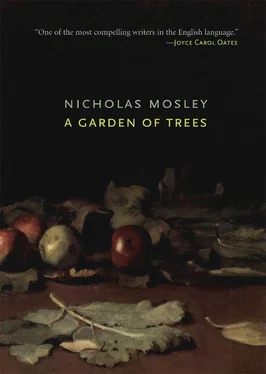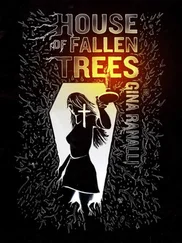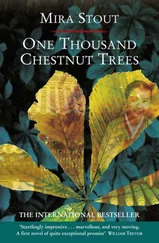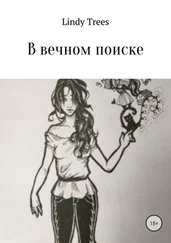Marius watched him. “He will be arrested,” Annabelle said. I could see the panel of lights by the lift shaft starting to flicker, which meant that the lift was ascending from the floors below. Peter stood there. “He is such an exhibitionist,” Annabelle said. The lift was approaching the floor upon which Peter stood, and there was a large glass window in the door where it might stop. “We’ll all be in the Sunday papers,” Annabelle said. The lights flickered up, uncertainly, and then the lift itself came into sight, through the glass window, like the raising of a blind. It did stop. A woman’s face was at the window, peering vacantly at Peter. Peter was motionless and imposing, like a statue. “Perhaps she’ll think he is one of the decorations,” Annabelle said. The woman’s face hovered, despairingly, like a moon. She put up a finger and tapped discreetly on the glass. Peter stood there. “She will, after all, never believe it,” Annabelle said. The moon blinked, pathetically, as if there were a fly on its nose. After a few seconds it retreated inside the lift and the blind descended. “She will now have to be analysed,” Annabelle said.
Marius had picked a flower out of a bowl that stood on the piano, and he walked to the door where he held the flower twirling in his fingers, and then he said, “Peter, can you pick a flower up with your toes?” Peter unhinged himself from the pose he had adopted and approached us slowly and said, “Yes, I can,” and raised his foot. Marius dropped the flower on the floor, where it lay, an ugly dark chrysanthemum, with a long green stem, rather spiderish, its head soft and heavy; and Peter picked it up with his toes. He lifted it carefully, balancing on one foot, transferring it from his toes to his opposite hand and then holding it out towards Marius. Marius took it. Peter lifted the towel and wrapped it around his middle and then went back to the bathroom. The door closed and Marius twirled the flower in his fingers so that it wobbled as if it were alive. “Alice once tried to kill herself,” he said.
“Is that one of your tragedies?” Annabelle said.
“Yes.” He came into the room and sat down. He looked serious, aloof, as if he were employed in some business. I had not seen him like this before. “Alice knows what she is talking about,” he said. “The man whom she loved was killed in a motor accident in which she was driving. The man whom she married was mad. It is really only people like Alice who know what they are talking about at all.”
“About suffering?”
“About hopelessness. Which is more to the point, which requires a creative fit to get out of, and that is what Alice hasn’t got. Perhaps the world hasn’t.”
“Do you have to have tragedies before you can talk?”
“There is always a tragedy. You have to see it. What did you say to Peter?”
“Not much. Did we do it all right?”
“I think so.”
“Alice has to fight.”
“That is better than nothing. Perhaps that is creative. She keeps herself from dying.”
“And the world?” I said.
“Keeps itself. If you can’t see the tragedy that is there all the time you create your own tragedies by fighting. It doesn’t help much. But people seldom see things unless they hit them on the nose.”
I was thinking all the time of Marius’s wife who was dying.
“How did Alice begin?” I said.
“By being poor. Did you realize that? It gave her a start. It is true that the future of the world is with those who have to work.”
“Did you have to work?”
“If you can call it that.”
“And the future is with Alice?”
“She knows what it is about. She doesn’t fool herself. Perhaps she has changed herself too much either to want it or to do much about it.”
“Why didn’t you stay with your communists?”
“There are other things besides the future of the world.”
“For those who don’t have to work?”
“There is the present. Nothing to do with the world. The eternal present.”
“Which is more important?”
“Both. The present, I think, to us. You and I are already dead to the world, you see.”
“The world is not dead to us.”
“Of course not.”
“What is this hopelessness?”
“Mixing eternity with the future. The future is what will happen, beyond our control, beyond our living. That is what is the world to those who work. Eternity is what might happen, what is in our control, what is in our dying. We can create it.”
“Hopelessness is hunger and drudgery,” Annabelle said. “It is nothing else.”
“With hunger and drudgery there is the future. There is always hope. Where there is no hunger or drudgery there is also the hope of the present. This is the same as eternity. There is only hopelessness when drudgery looks to the present and idleness looks to the future. Alice is idle and looks to the future, but she remembers drudgery. That is her mixture of fact and hopelessness.”
“I don’t understand,” Annabelle said.
“Neither do I.”
“Begin again.”
“To do anything with life or death you have got to be creative. To be creative you have got to see tragedy. Those who work, who are poor, see the tragedy of the work. It hits them, they see it, they are the world’s future. This has nothing to do with truth, nothing to do with eternity. The idle are the world’s past, but to everyone there is the tragedy of man and eternity. This is what has to do with truth, and what is seldom seen.”
“When idleness is despised it will hit the idle. That is what is happening. Bricks at the public schoolboy may save his soul.”
“They may save his future. But his soul? He will only have ceased to be idle, dodging bricks.”
“I don’t care about this boy,” Annabelle said. “I care only that miserable people should not continue in their misery.”
“Do you mean misery or do you mean hunger and drudgery?”
“I mean either. For us they are the same. You said that the world was not dead to us. Aren’t we talking about souls?”
“Are you?” Marius said.
“You once said also that we could not touch ourselves until we had touched others. We cannot help ourselves until we have helped others. This is talking about souls.”
“That is the present, then.”
“All right. Whatever misery is, it is for us to do something.”
“For us, yes. To be creative. Was it that this evening?”
“So you can begin,” Annabelle said again.
This conversation was spoken in a flat, quick way as if we were reading from a book. It was like a verbal exercise, I thought: or like the statements and responses of a service in a church. We were strangely formal with each other.
“Peter was very clever,” Marius said. “It was almost frightening.”
“He was always good at games,” Annabelle said.
“He got rid of the right things this time.”
There was a sudden shout from the bathroom, and the noise of a fall. Neither Annabelle nor Marius moved. I wondered if all that Peter had done that evening — when he had danced out to the landing, for instance — was designed to get rid of embarrassments. Even now I could feel the formality loosening. Then there was a cry from Peter saying, “I am hurt, I have got concussion.” Annabelle stirred, unhurriedly. “Oh dear,” she said.
She got up and went to the door. Peter appeared, still naked, his bath towel rather sodden, his hand up to his head. “What happened?” Annabelle said.
“My towel fell in the water,” he said.
“I mean what happened to your head?”
“It hit the ceiling,” he said.
He tottered towards us. “I was doing a jump,” he said. “I had the impression that I could not come into the room without a jump. So I was practising. I went up like a balloon. I had to make my entrance, you see.”
Читать дальше












